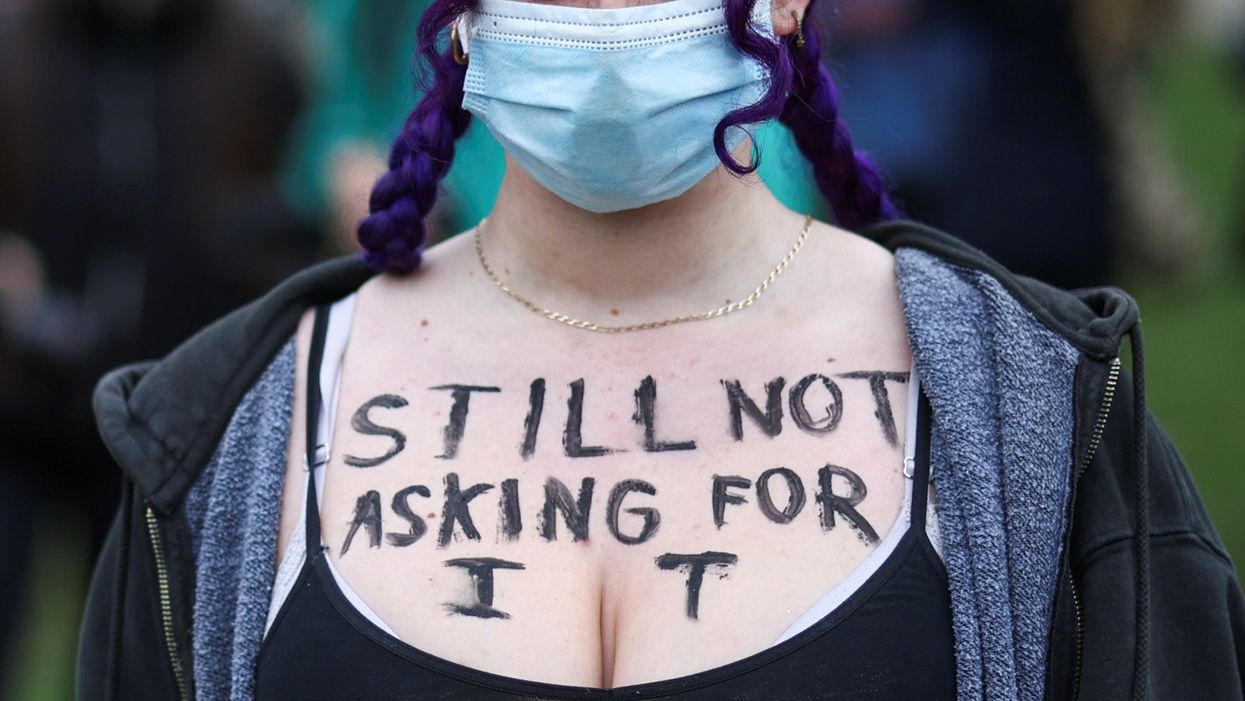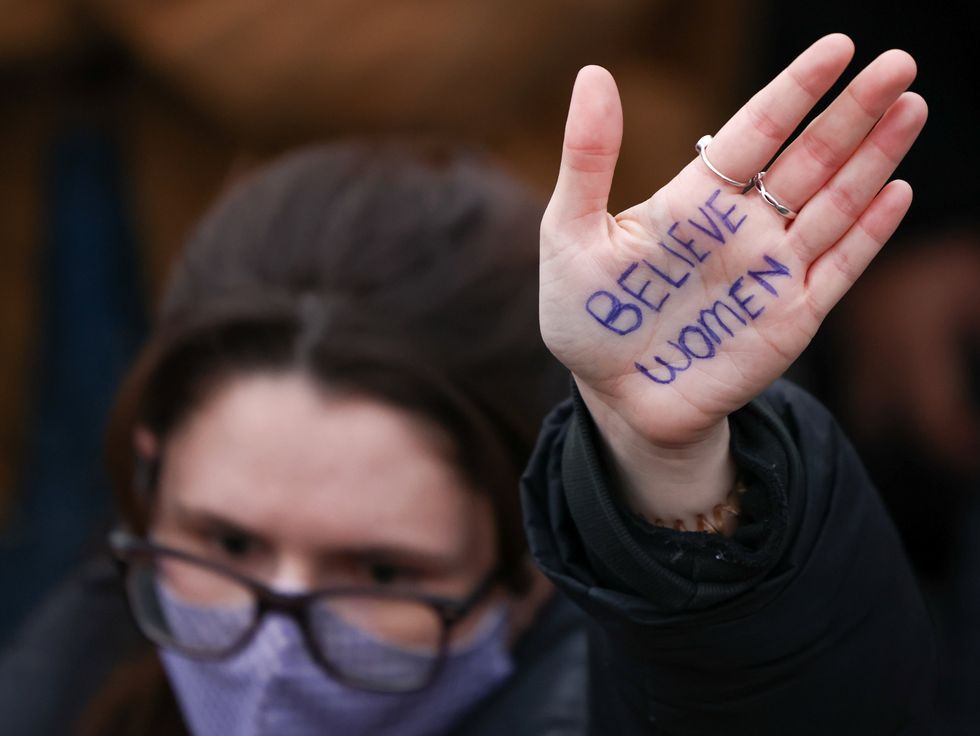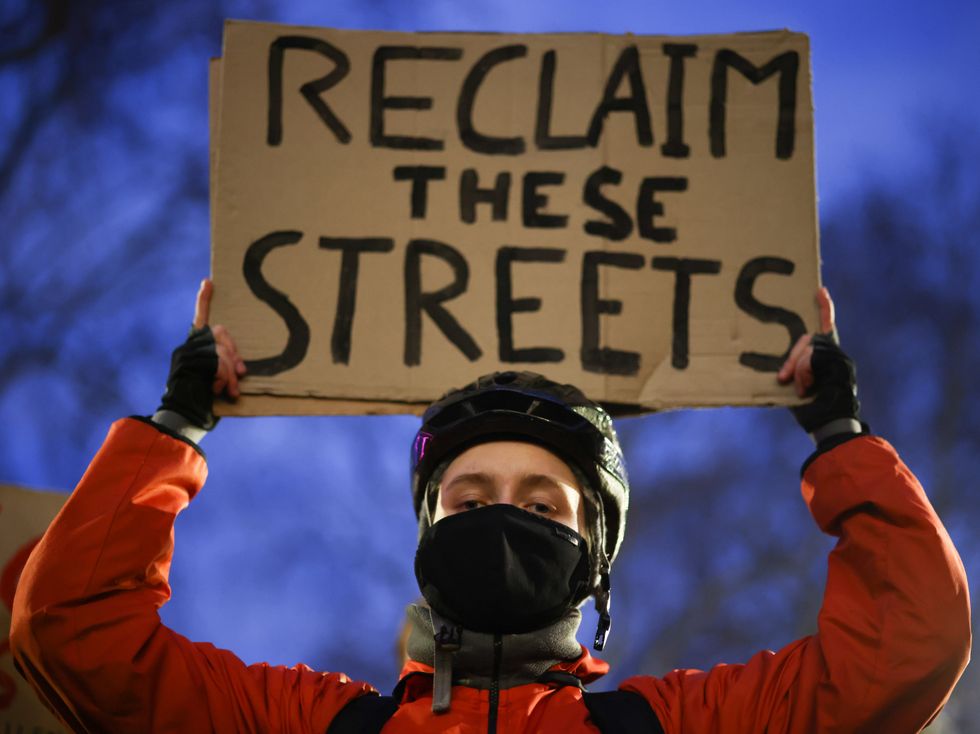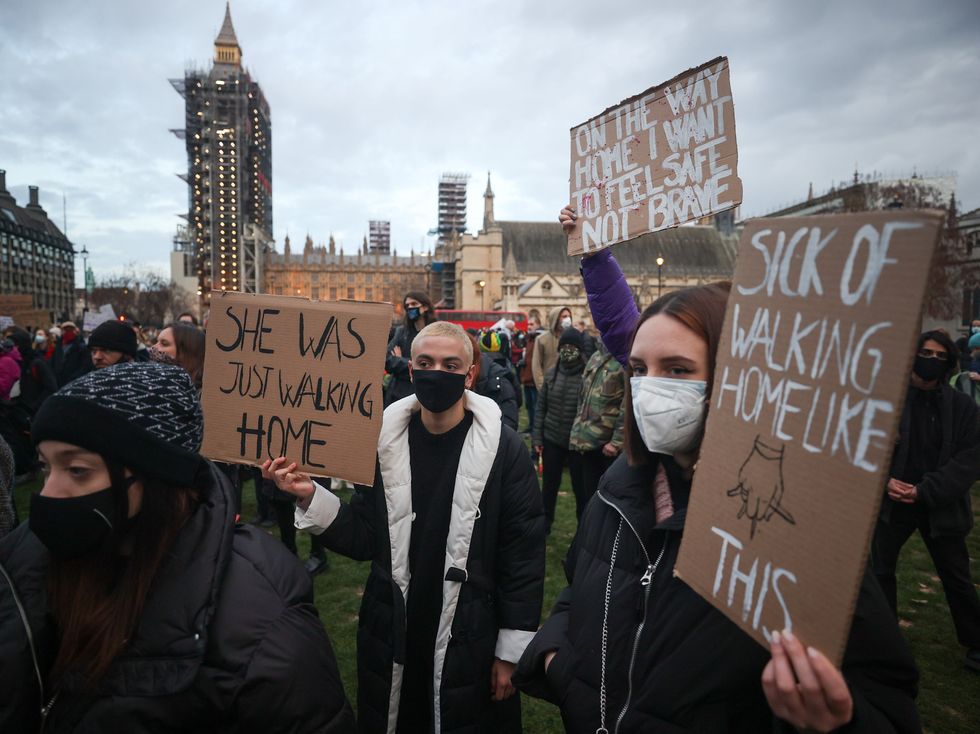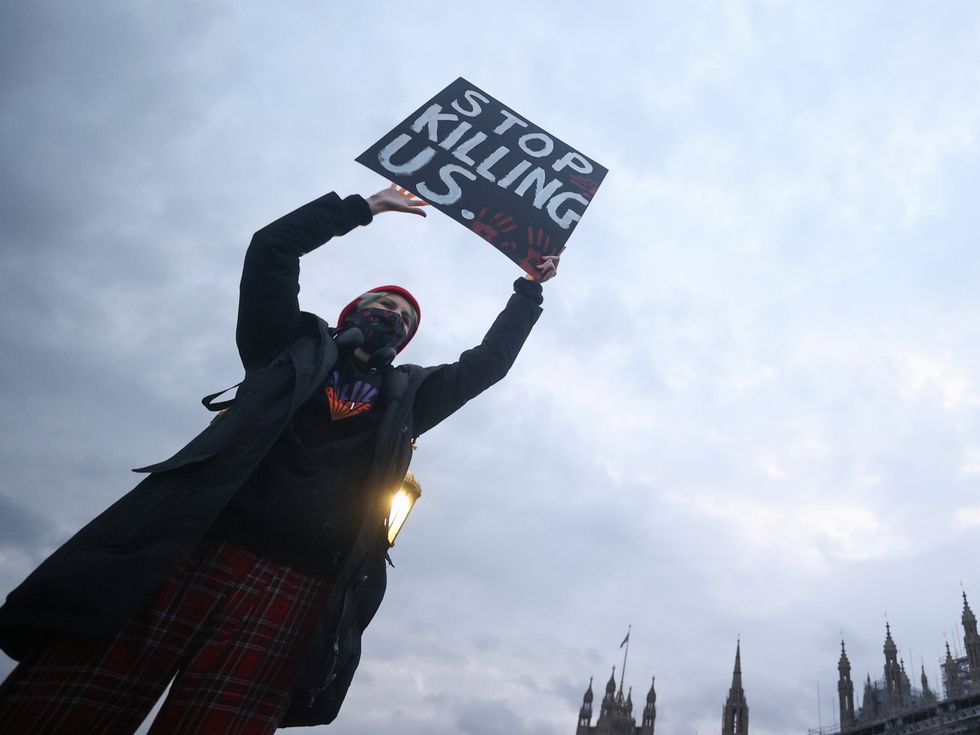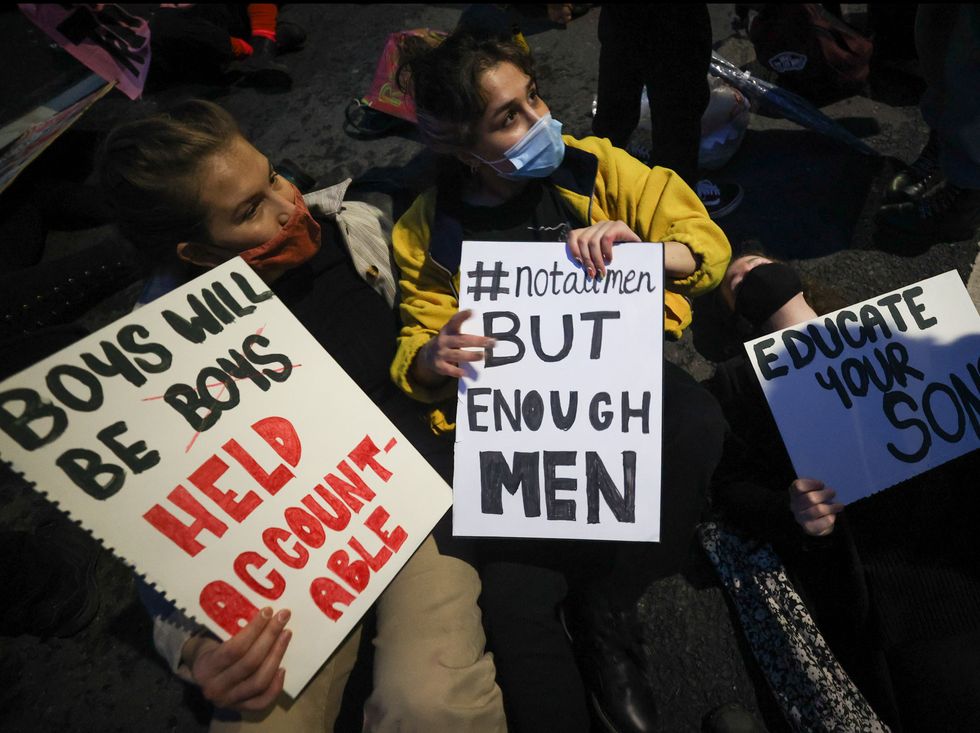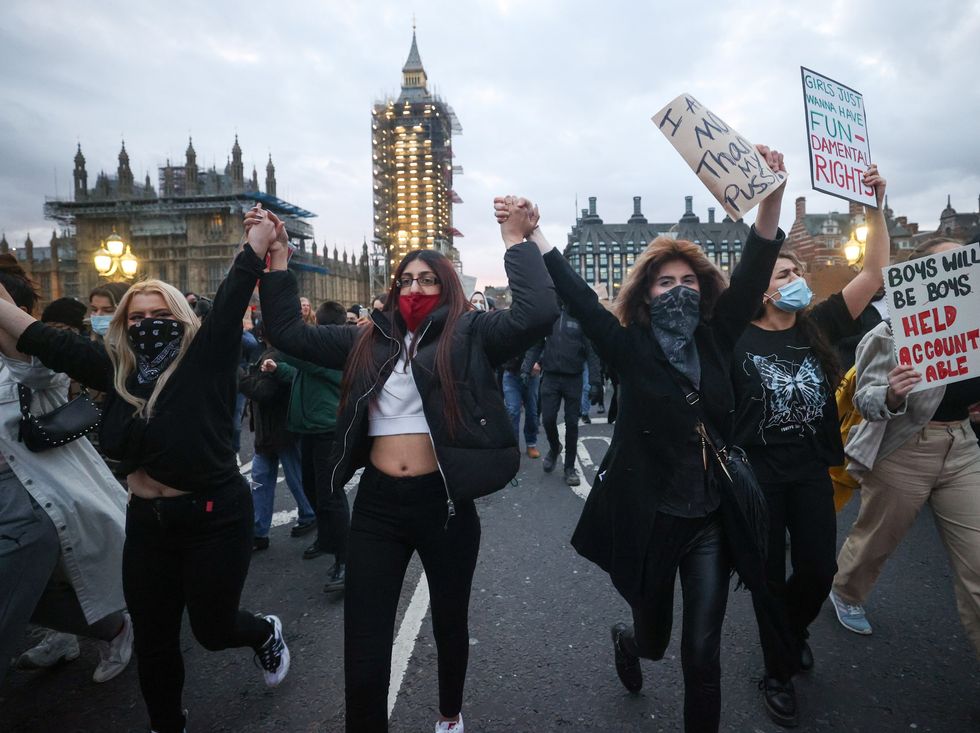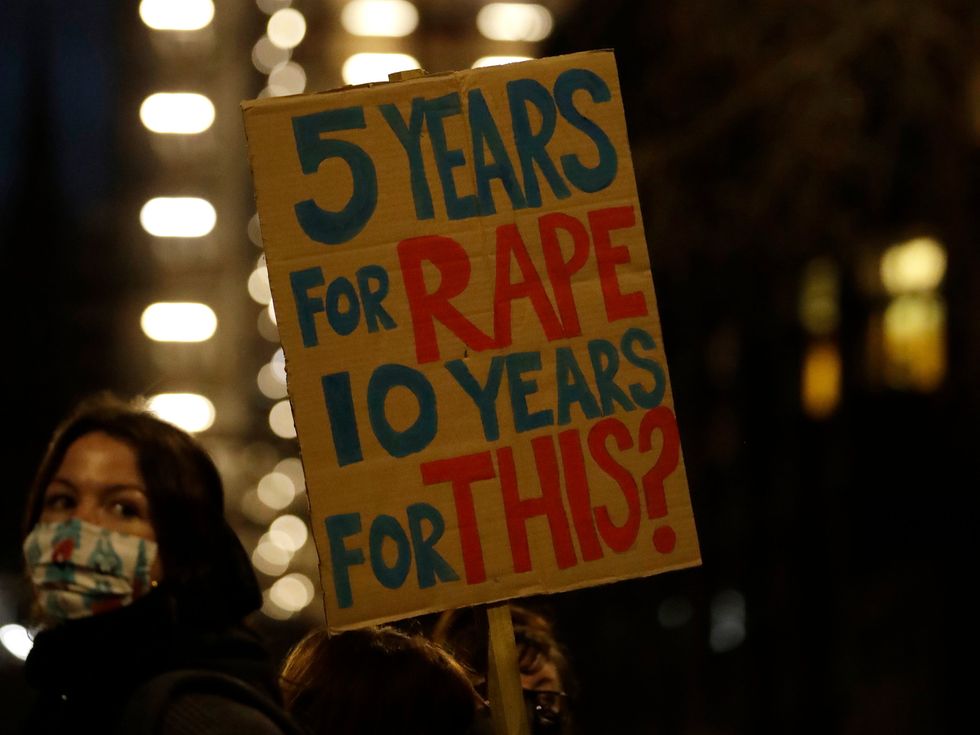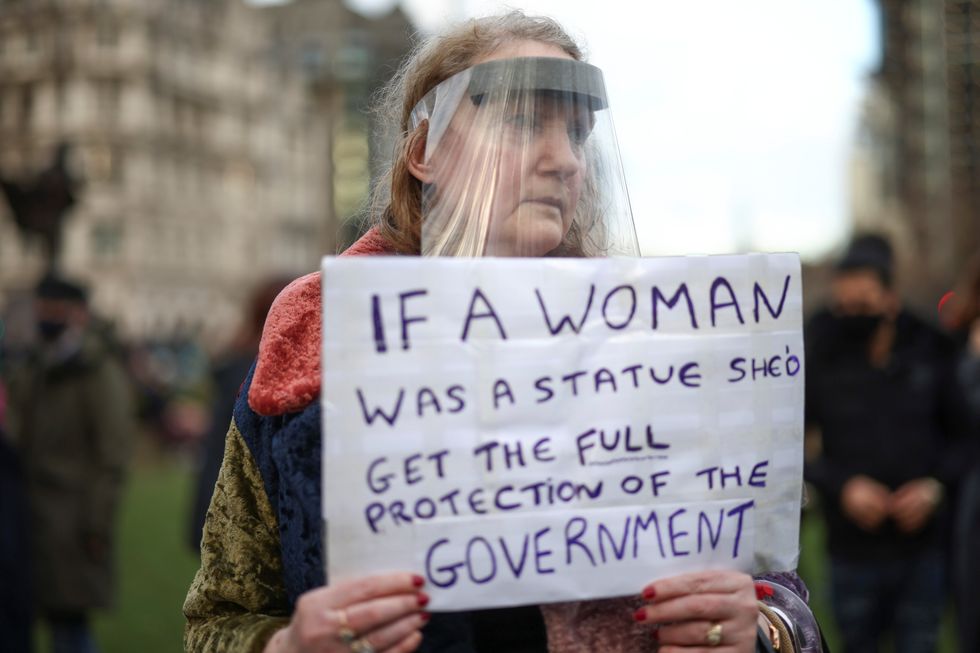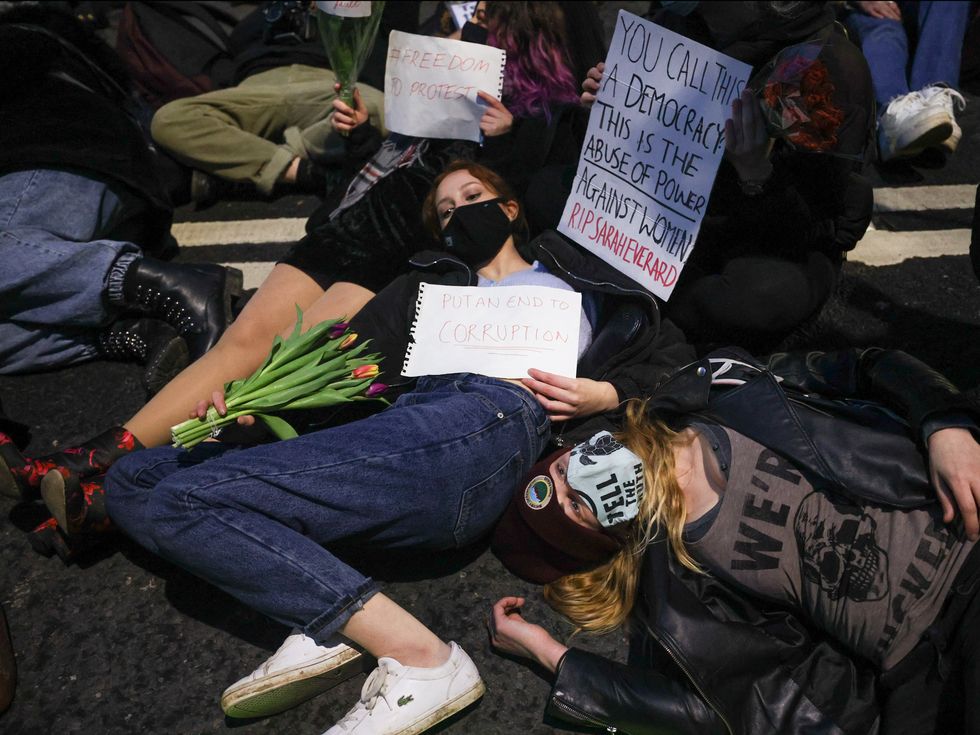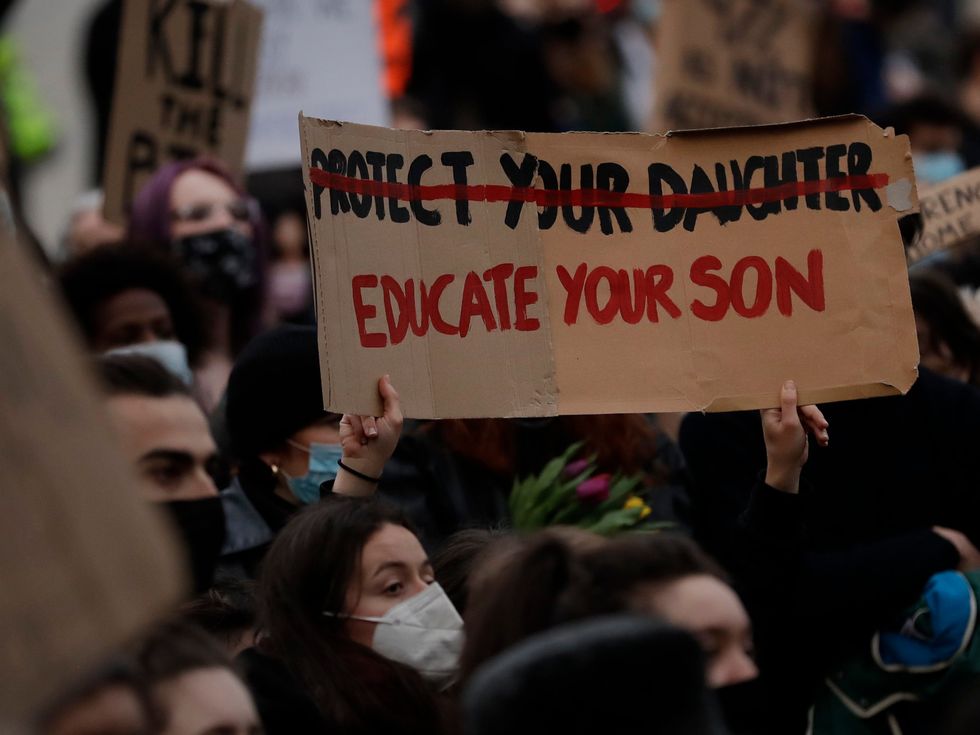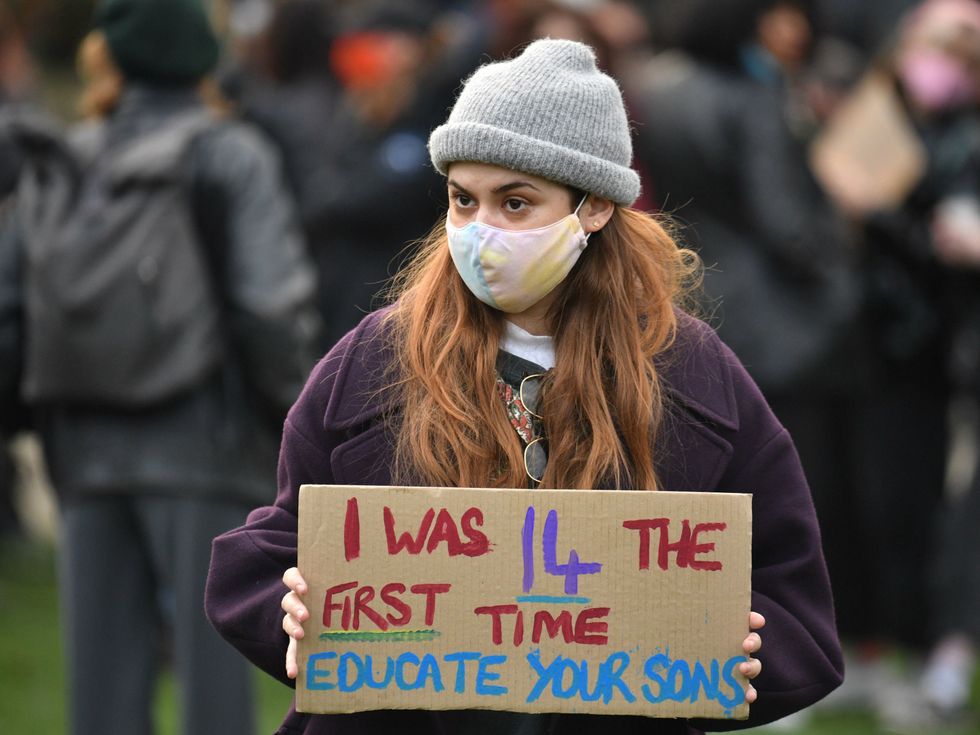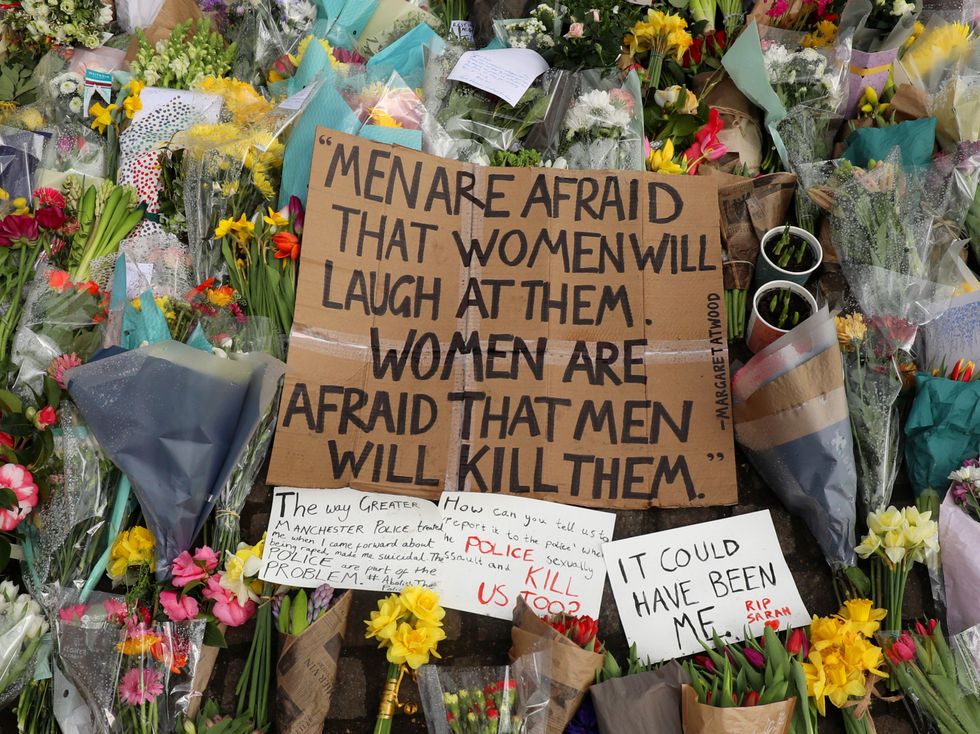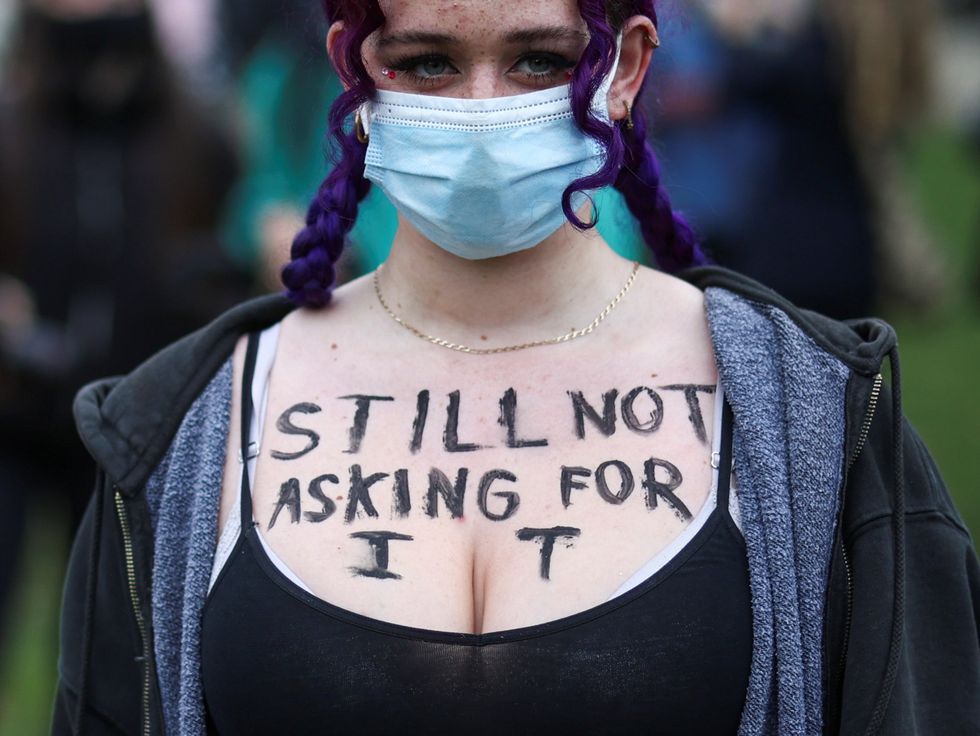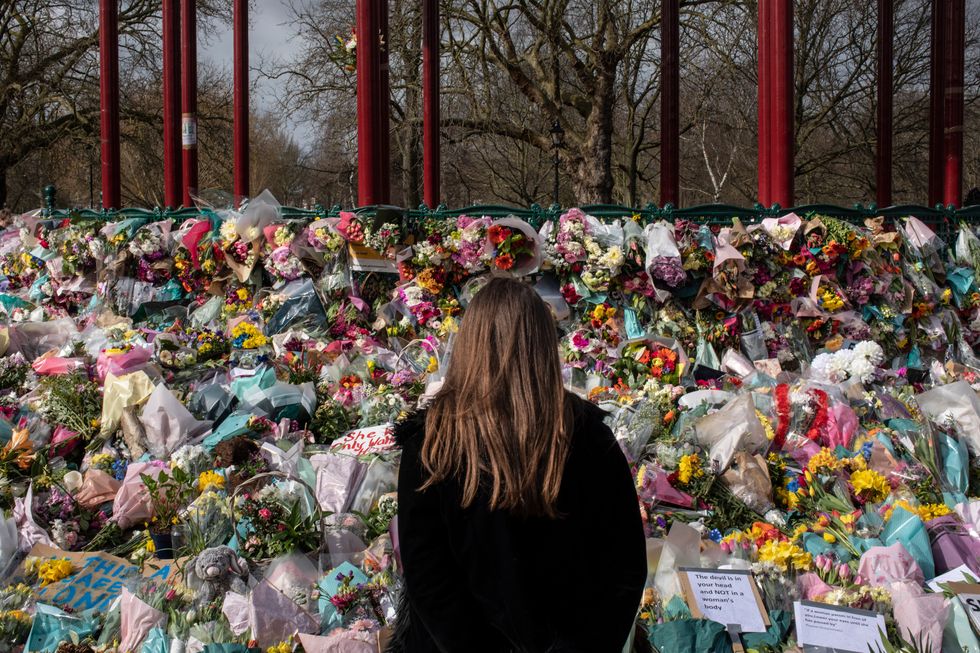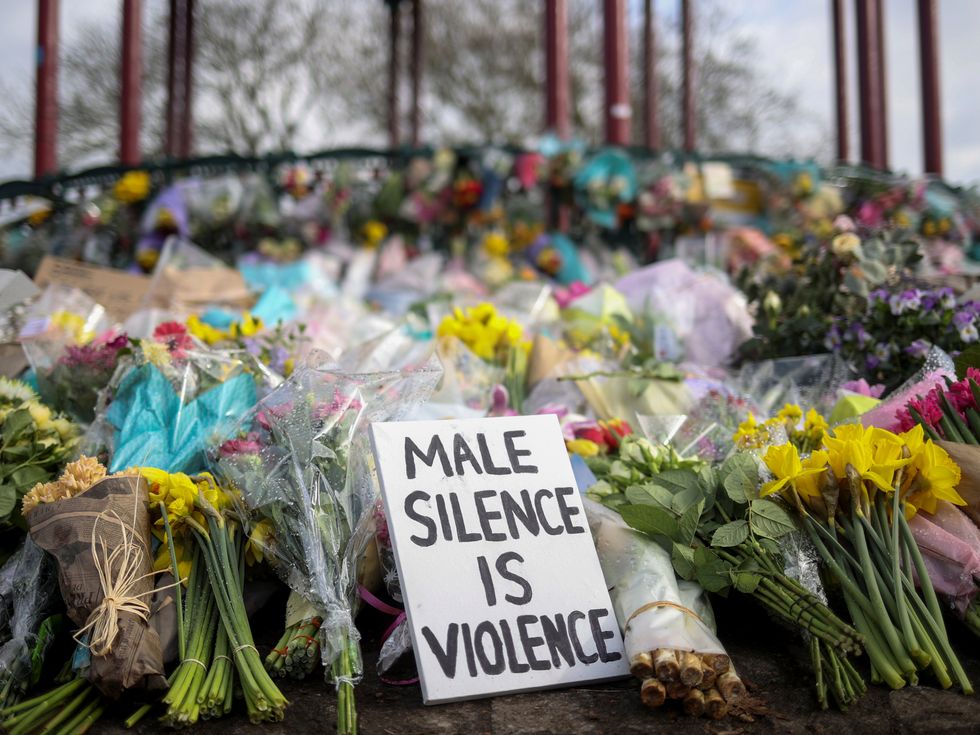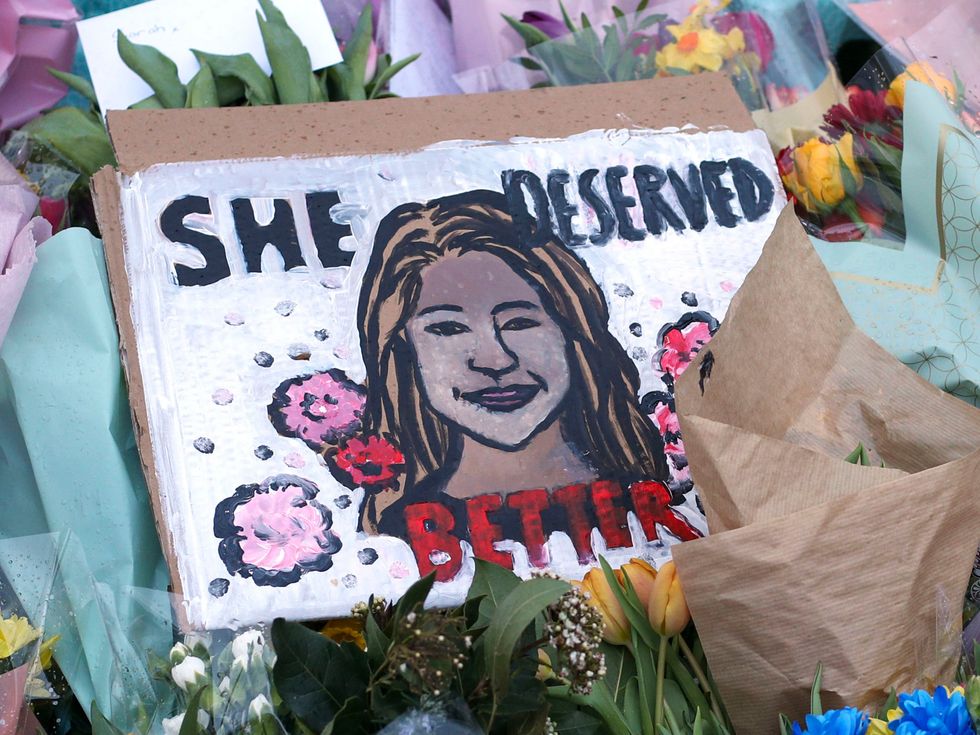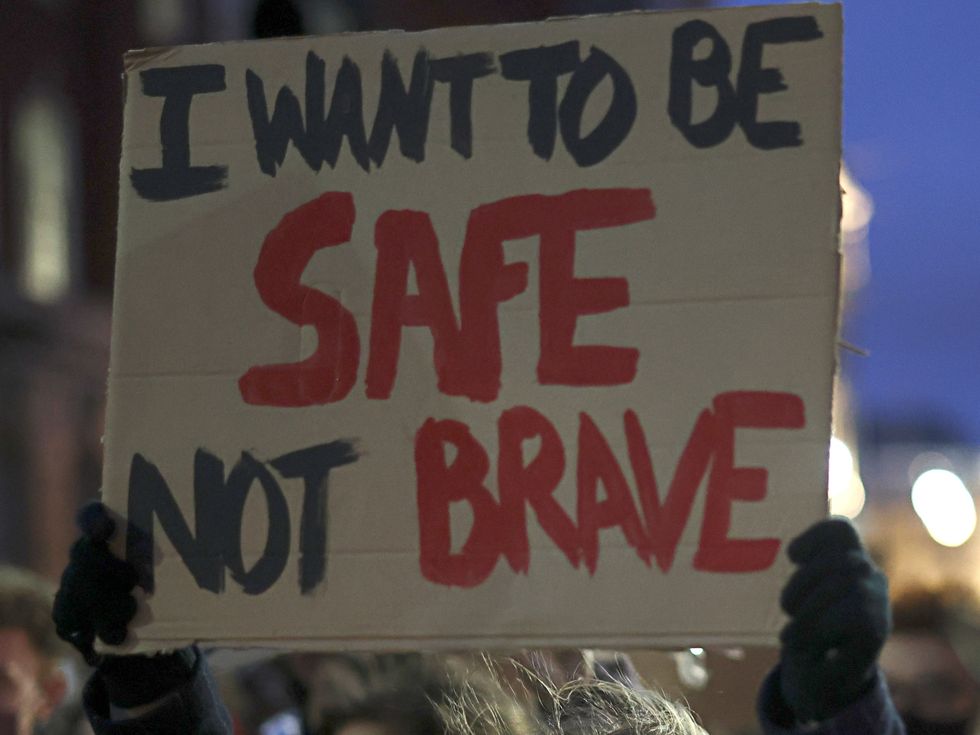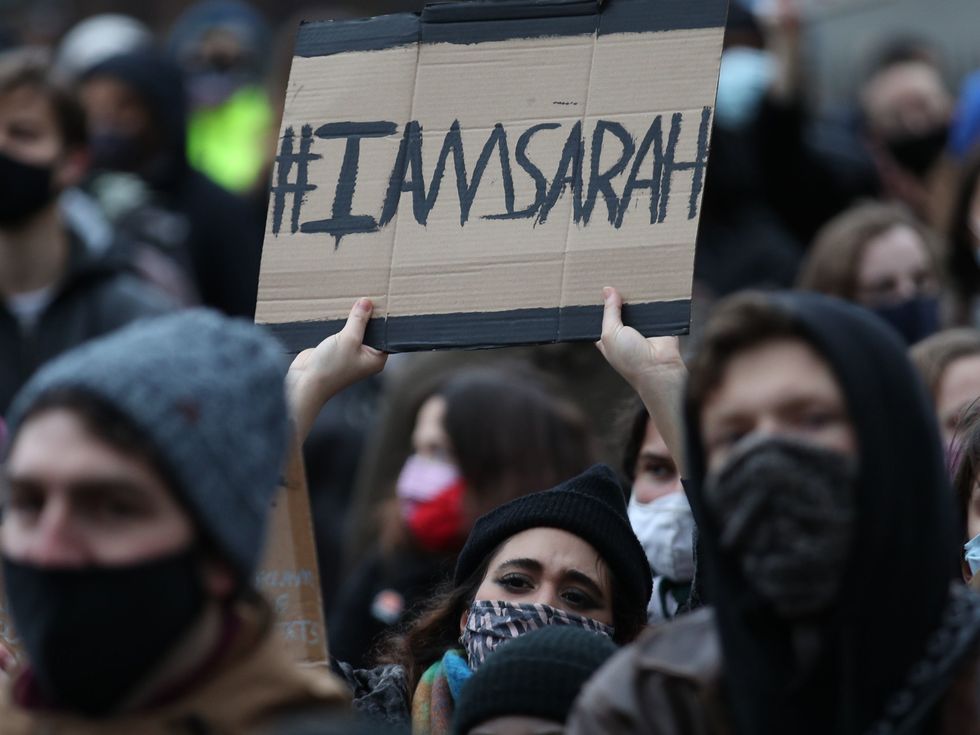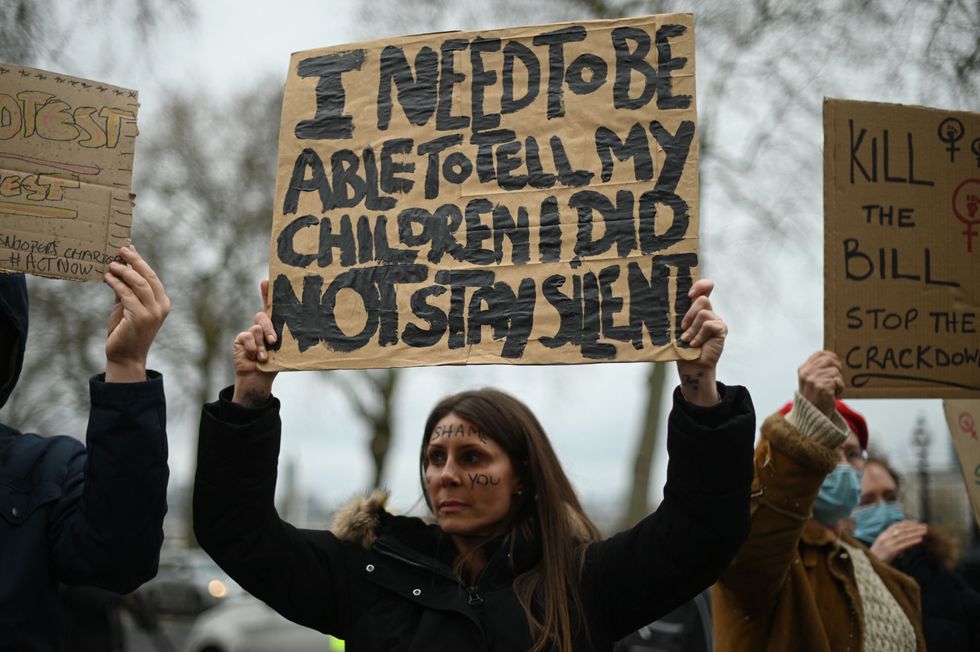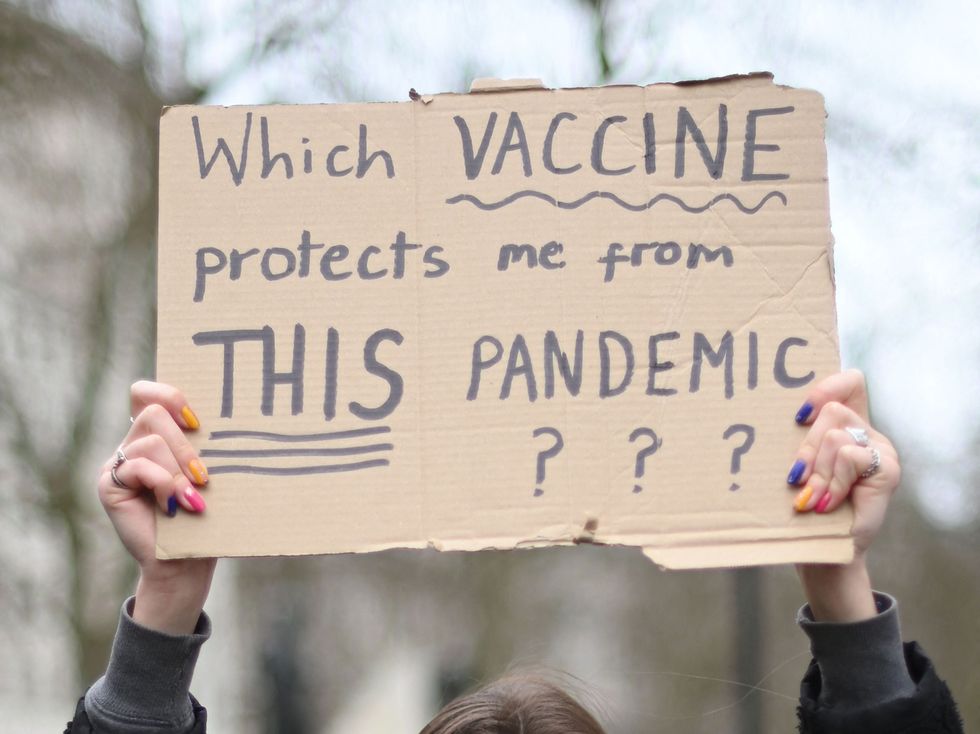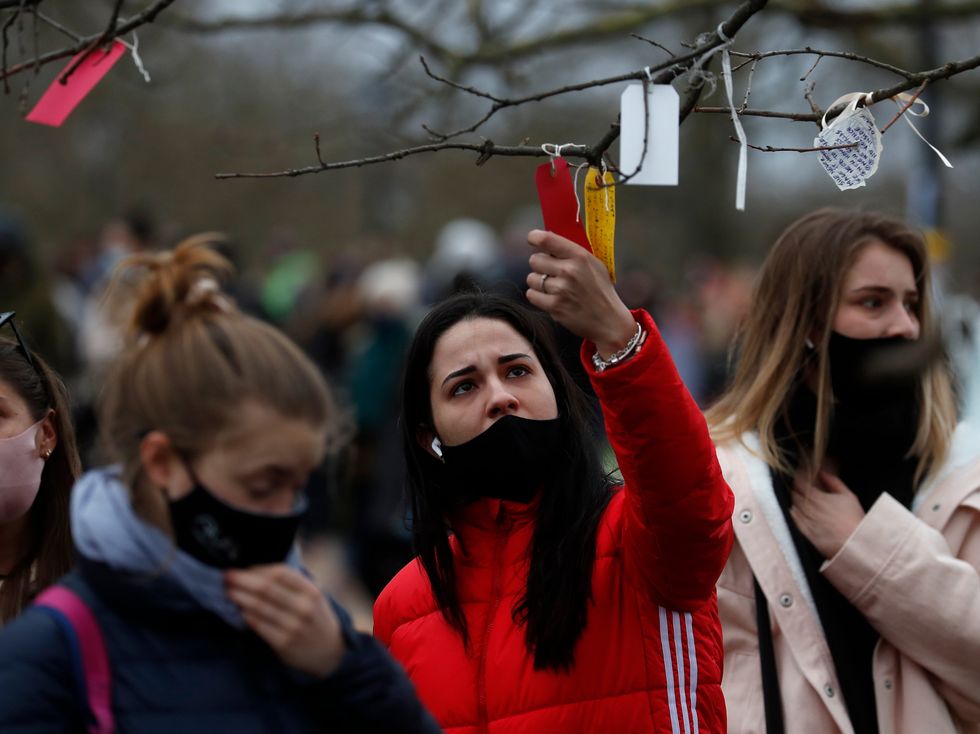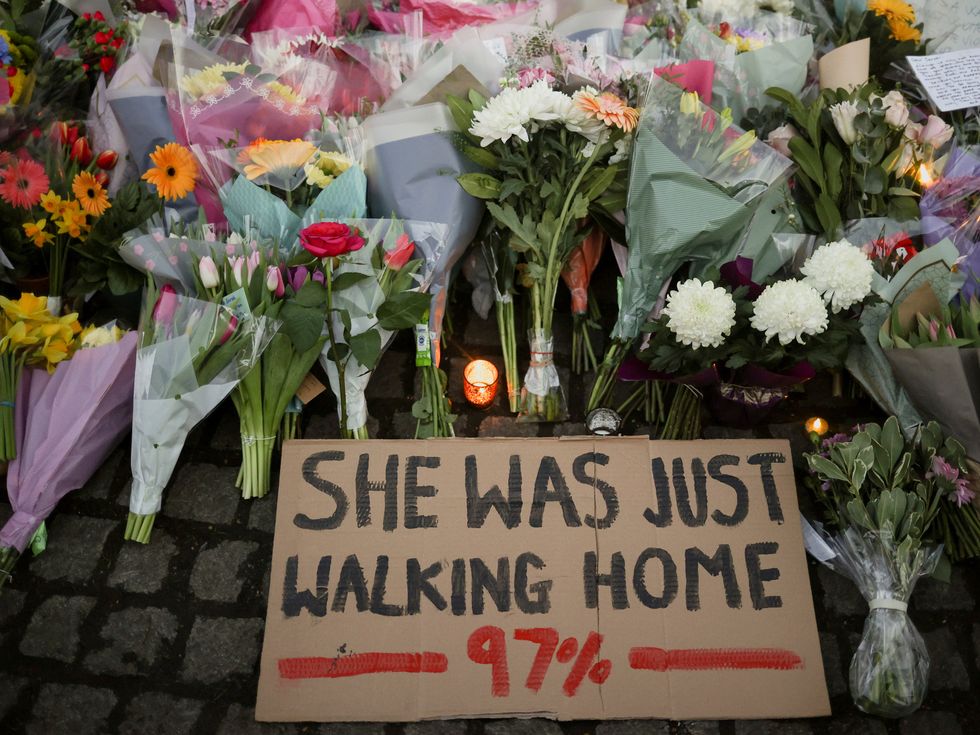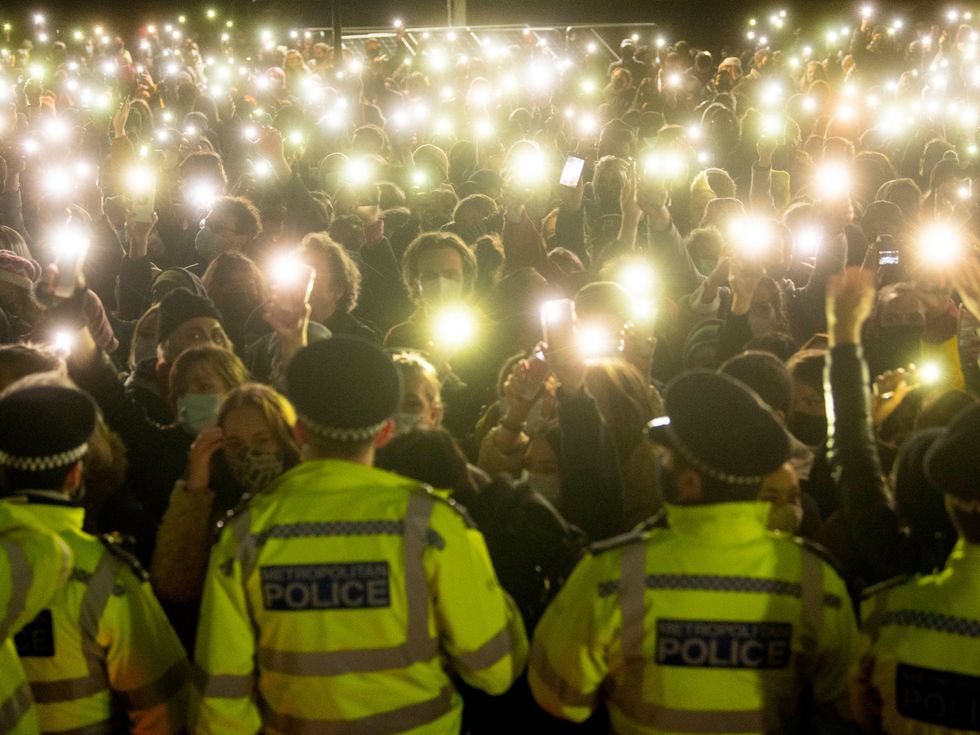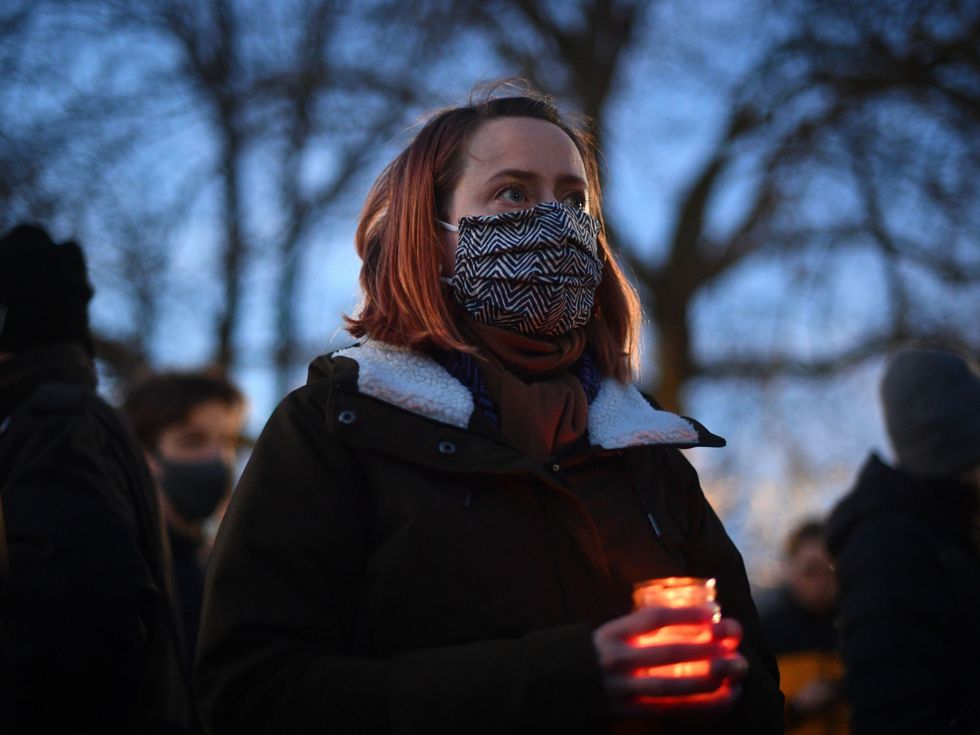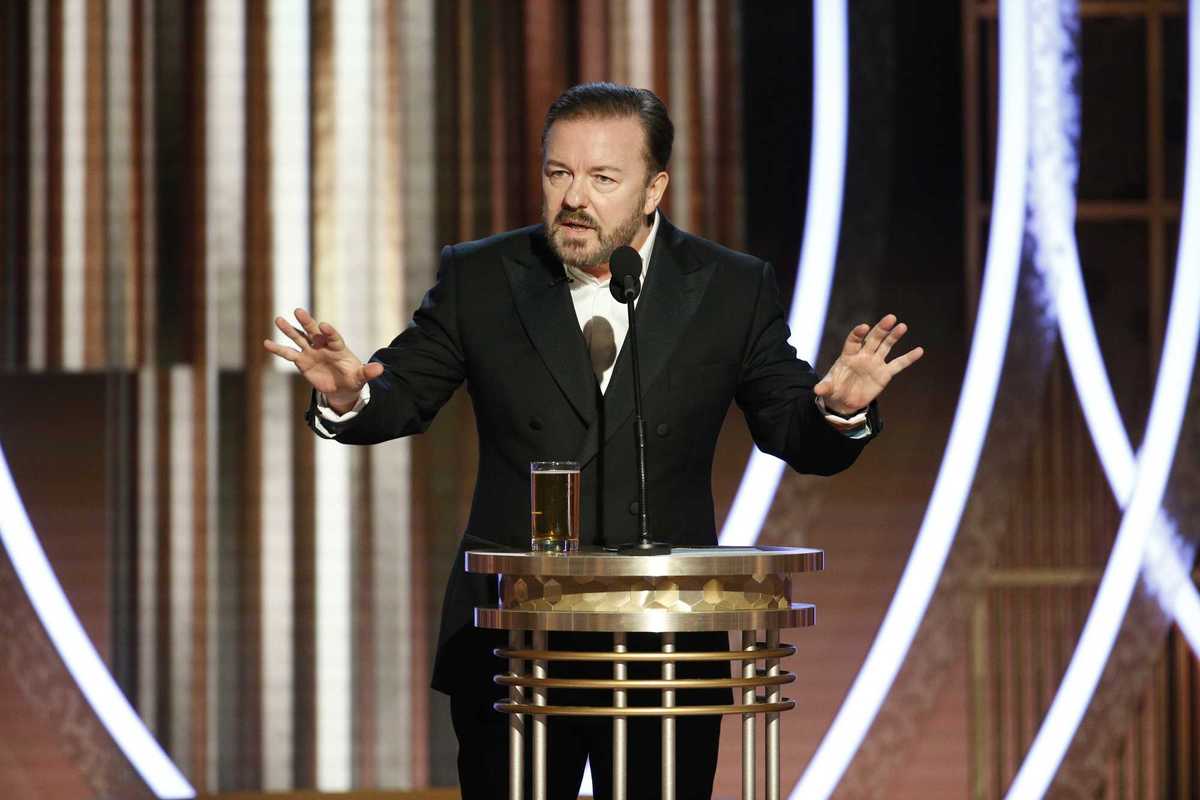News
Harriet Brewis
Mar 16, 2021
The murder of Sarah Everard has lit a flame in the hearts and minds of women across the UK.
The bright, kind and funny 33-year-old was killed as she walked home from a friend’s house in south London. It was an everyday act that should have been perfectly safe but, for Sarah, it wasn’t.
And for many women such activities never feel safe, because there is always the underlying fear that someone – namely a man – lurking in the shadows could harass, abuse them or worse.
Sarah’s death was the most terrible reminder of this, which is why women have stood up and demanded better.
After a planned vigil was cancelled by the authorities on Saturday owing to coronavirus restrictions, mourners took matters into their own hands.
They congregated in Clapham Common anyway, bearing flowers, candles, and messages of both tribute and indignation: this shouldn’t have happened to her; this shouldn’t happen to any woman.
The initially peaceful event descended into chaos, with clashes between atendees and police now the subject of two separate investigations.
But this did not stem the protesters fervor, instead, it made it stronger.
Since then, vigils and protests have continued across London, with action taking place outside Parliament in Westminster and the Metropolitan Police headquarters Scotland Yard.
Here, we’ve put together some of the most striking images from the past three days – and what they signify.
A woman has a simple but powerful message written on her hand during the Parliament Square protests. It is a call to authorities and others to believe victims when they say they have be subjected to sexual assault or harrassment. It is also closely linked to the #MeToo movement when it fell into widespread use.
A protester raises a placard reading ‘Reclaim these Streets’ – the name of a group which had originally organised Saturday’s Clapham Common gathering to remember Sarah and all women lost to violence. However, the authorities refused to grant them permission to hold the event, forcing them to cancel what they intended to be a socially distanced vigil. Since then, the group has raised tens of thousands of pounds for women’s charities and ‘Reclaim these Streets’ has become a movement in itself.
Demonstrators outside Parliament on Monday wield signs referring to Sarah who was "just walking home" before her death, and pointing to many women’s experience of clutching keys between their fingers as a form of self-defence against potential attackers.
A simple but powerful sign reads "stop killing us", in response to violence against women. In the year to March 2020, 207 women are recorded as having been killed in the UK. However, the hidden nature of domestic abuse means there are likely to be many victims unaccounted for.
A group demands that men to be held accountable for their actions if they are accused of sexually harassing or assaulting a woman. One poster calls for better education of young people, urging parents: "Educate your son". Another sign takes up the hashtag which circulated on social media as men defended themselves as "not all" culpable. It agrees that not every man poses a threat, but “enough” do.
Some signs don’t need words: this image shows women clasping each other’s hands in a show of solidarity and mutual support.
The sentence for rape starts at five years, whereas the maximum penalty for damaging statues is 10 years. This has not gone unnoticed by campaigners.
Another protester makes a similar point: that in statues are offered better protection than women owing to the severity of potential punishments.
Women lie on the ground as part of a "die-in" during action outside Scotland Yard. This action is often taken to symbolise that an organisation being protested against – in this case the Metropolitan Police – is contributing to people’s deaths. The force has been sharply criticised for its handling of Saturday’s vigil, and for not always offering adequate attention to complaints of harassment.
Scores of activists have hit out at the suggestion that women and girls should be protected against potential predators. Instead, boys should be properly educated and actively prevented from becoming aggressors.
A woman holds up an ominous sign saying she was just 14 "the first time". This is a reminder that young girls are also subjected to abuse and harassment, not just grown women.
A placard quotes famous words from The Handmaid’s Tale author Margaret Atwood: "Men are afraid that women will laugh at them. Women are afraid that men will kill them.”
This striking body paint makes the point that no victim sets themself up for abuse or harassment. People should be free to wear what they want – men cannot cite "provocative" or "revealing" clothing as justification for inappropriate behaviour.
A woman looks on at a sea of flowers left in memory of Sarah around Clapham Common’s bandstand.
A sign encourages men to speak out against abuse or harassment if they encounter it. To ignore it and say nothing makes them complicit.
A portrait of Sarah reading simply: "She deserved better".
A woman carries a sign highlighting that she should not need to "be brave" – women should be able to walk the streets safely without fear of being attacked.
A mark of solidarity saying: "I am Sarah’’. It is a reminder that what happened to Sarah could have happened to any woman simply making her way home from a friend’s house. Such hashtags became common following the 2015 Charlie Hebdo massacre, with mourners and supporters of the victims saying: "#JeSuisCharlie.”
A woman stresses that we must all fight to effect change and to ensure better protections for women. She suggests she is protesting so that she can one day tell her children that contributed in some way to the cause.
Police shut down the vigil on Clapham Common citing current Covid regulations which prohibit large public gatherings. But while strict measures are being taken to protect the public from the virus, one protester asks what will protect her from the pandemic of sexual violence against women.
Messages don’t have to be big and eye-catching to make an impact. Notes were written on small pieces of card and tied to a tree near the bandstand in Clapham Common as part of the memorial to Sarah.
Amid the flowers is yet another reminder that Sarah wasn’t doing anything irresponsible or ostenisibly dangerous on the night of her murder: she was simply heading home. The figure written in red underneath refers to a statistic published by UN Women UK, which found that 97 per cent of women aged 18 to 24 have been sexually harassed.
This striking image shows the sea of mourners and vigil attendees in Clapham Common using their phone lights as torches. The police stand guard but, in the foreground, a raised fist can be seen in a mark of strength and defiance.
Sometimes one voice, one spark, is all it takes to spark a movement.
More: The killing of Sarah Everard sparks a larger conversation surrounding violence against women
Top 100
The Conversation (0)
